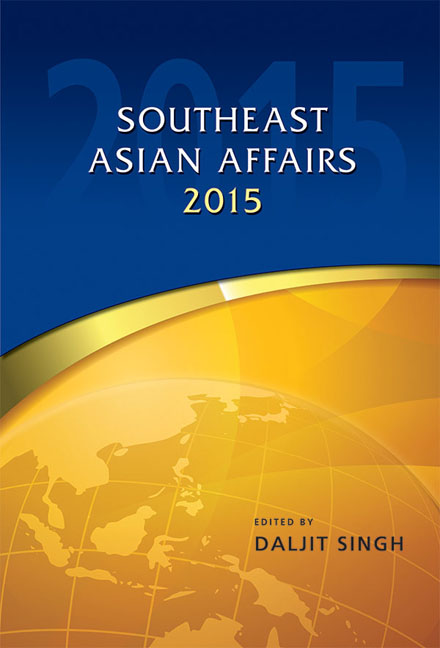Vietnam's Online Petition Movement
from VIETNAM
Published online by Cambridge University Press: 19 May 2017
Summary
In July 2014, sixty-one members of the Vietnamese Communist Party (VCP) posted online an open letter to the party leadership and all of its members. While decrying the Party's response to China's bullying in the South China Sea, the letter called on the Party to “leave off from the mistaken path of socialism for a definitive change to the path of the people and democracy” (Para 6). It was a bold statement for a country where public expressions of opposition to the authoritarian regime are strongly discouraged and sometimes harshly punished. Later in October, another online statement by a new generation of self-declared independent “civil society organizations” declared their support for prodemocracy demonstrators in Hong Kong and made an appeal to Vietnamese youth to take on a similar struggle at home. These initiatives were examples of a new movement in Vietnam of using online petitions to publicize social grievances while also directly or indirectly promoting liberal democratic ideas and challenging authoritarianism.
The online petition movement is a recent development in Vietnam's domestic politics. It has helped generate open and critical commentary on the most controversial topics of the moment, in contrast to the state's tendencies to hide and censor them. In doing so, it has also advocated for liberal constitutional freedoms of speech, assembly and private property, rule of law, and opposition to party dictatorship. Furthermore, the people leading the petitions have included many renowned public figures — loosely referred to as “prominent intellectuals” (nhân sў trí thúc) — and those signing onto them have come from all walks of life. While their total numbers still only reach a few thousand — with the notable exception of the 15,000 that signed the petition on constitutional reform in 2013 — they are a leading edge in a country where, traditionally, only the boldest and most radical individuals expressed their opposition to party dictatorship. This article retraces the emergence of Vietnam's online petition movement and examines its significance.
The Internet and Domestic Politics
The emergence of Vietnam's online petition movement partly reflects the rapid expansion of the Internet in Vietnam. However, the Internet should not be seen strictly as a technological miracle that automatically makes societies more democratic. Rather, it has been used both to support and resist democratization efforts. Scholarly literature on the topic has warned against unilineal assumptions on the causal relation between the Internet and democratization.
- Type
- Chapter
- Information
- Southeast Asian Affairs 2015 , pp. 402 - 415Publisher: ISEAS–Yusof Ishak InstitutePrint publication year: 2015

